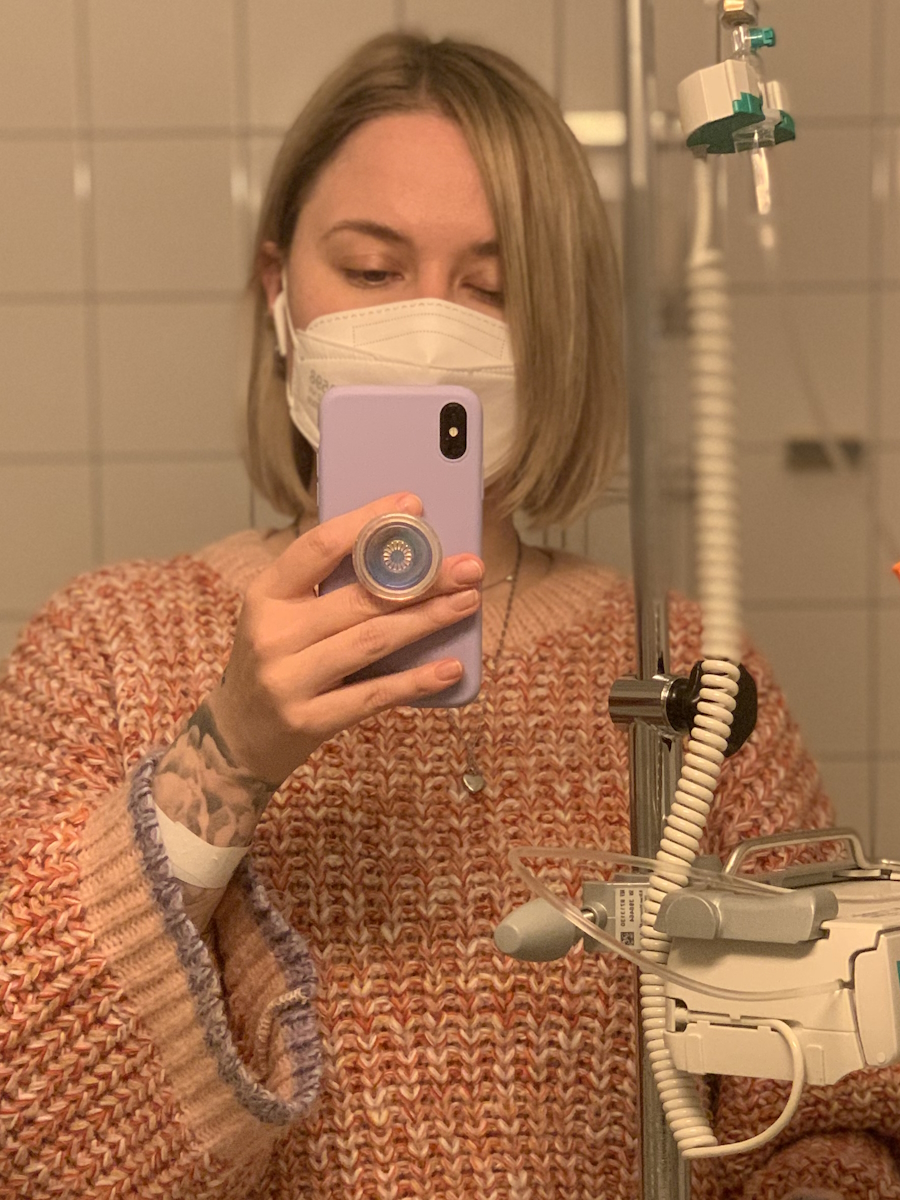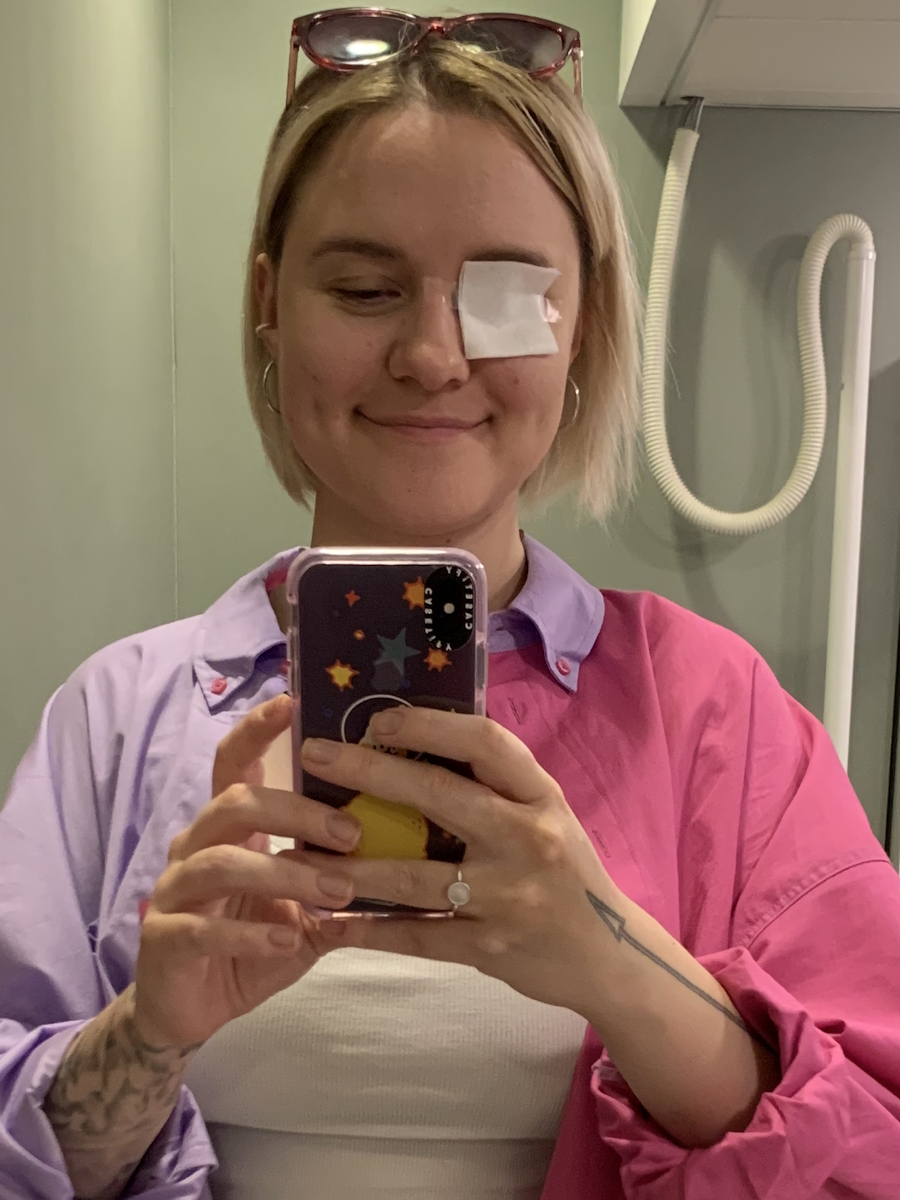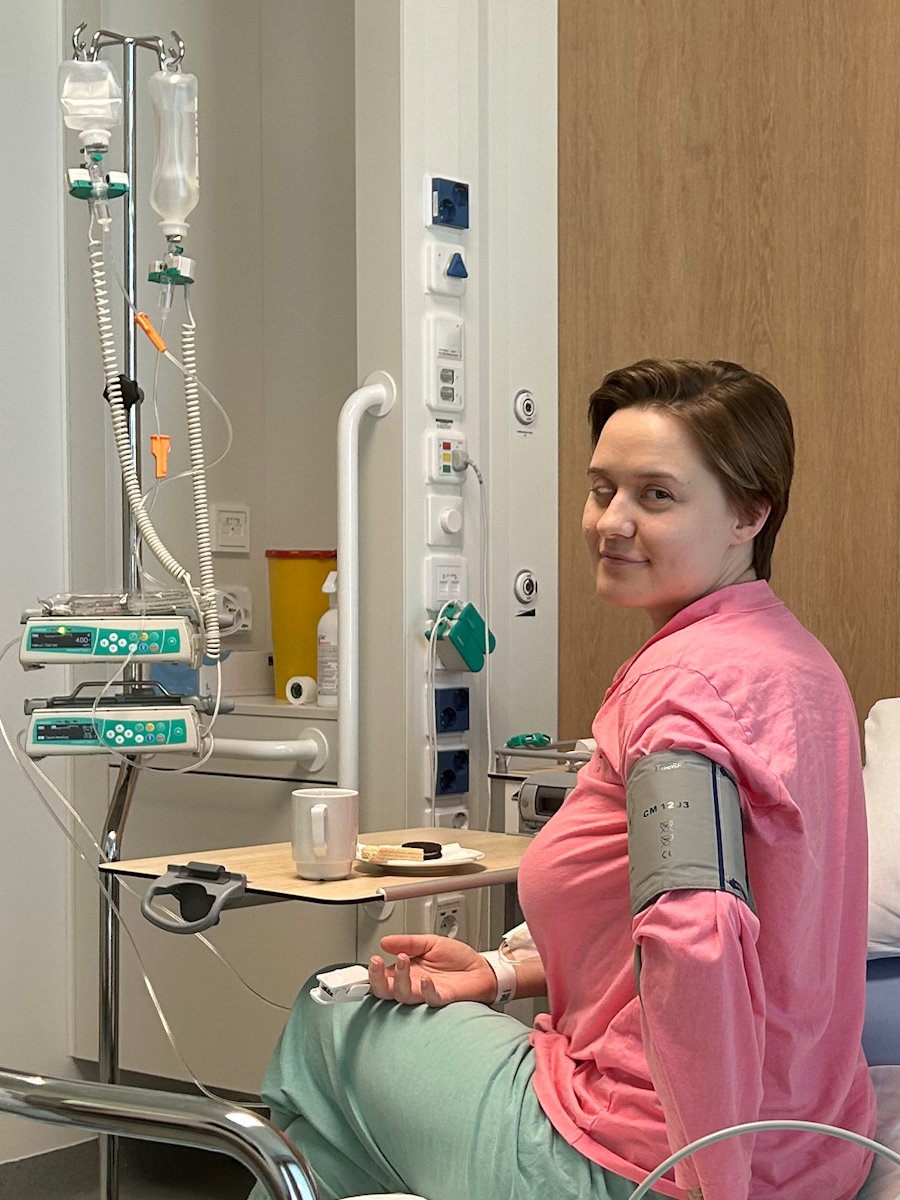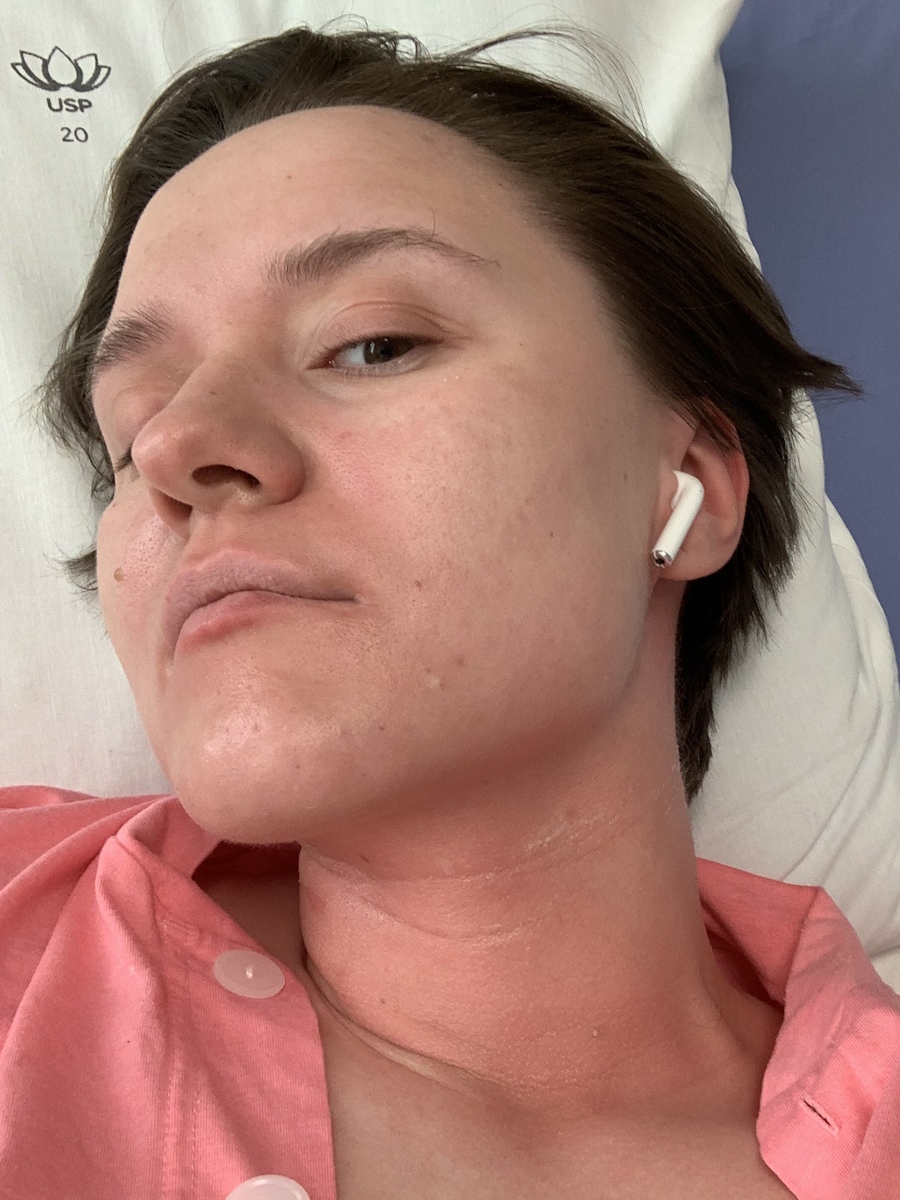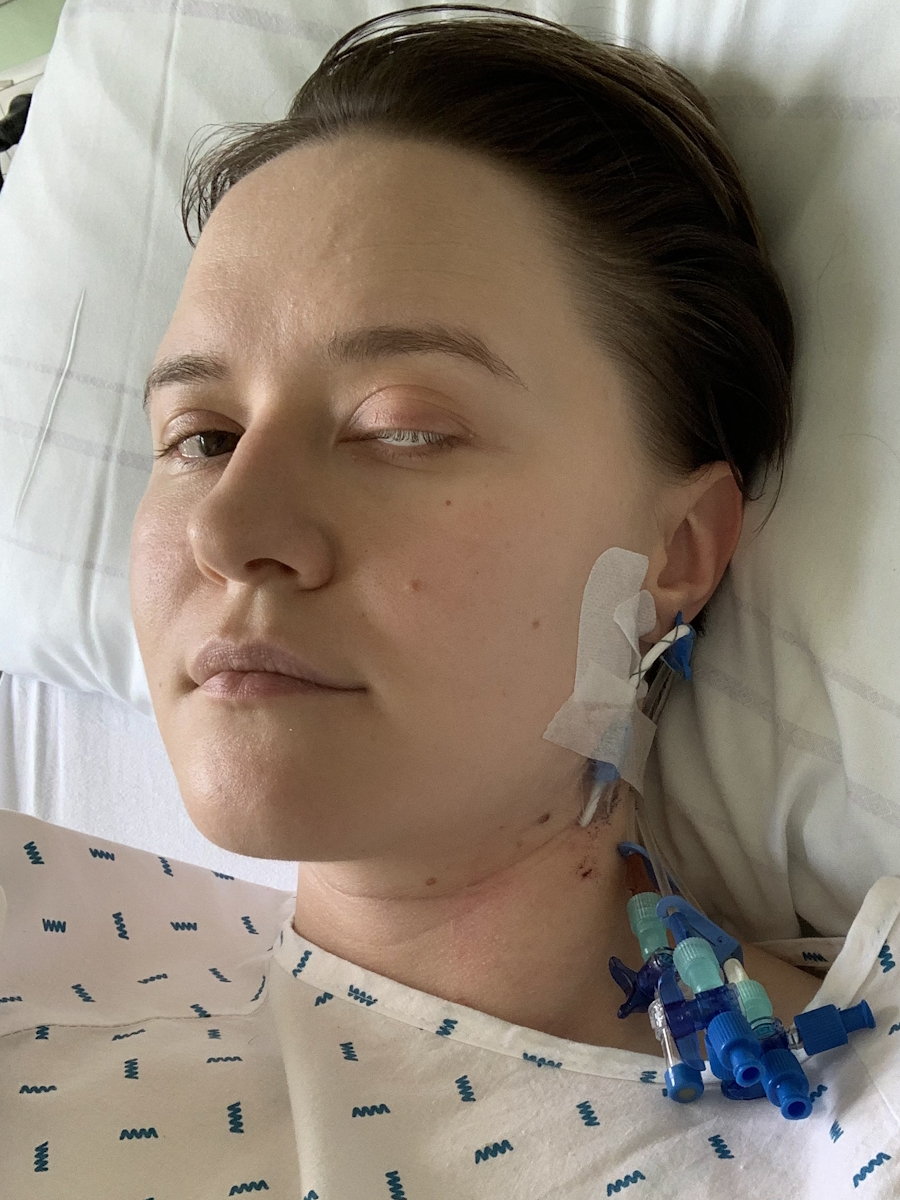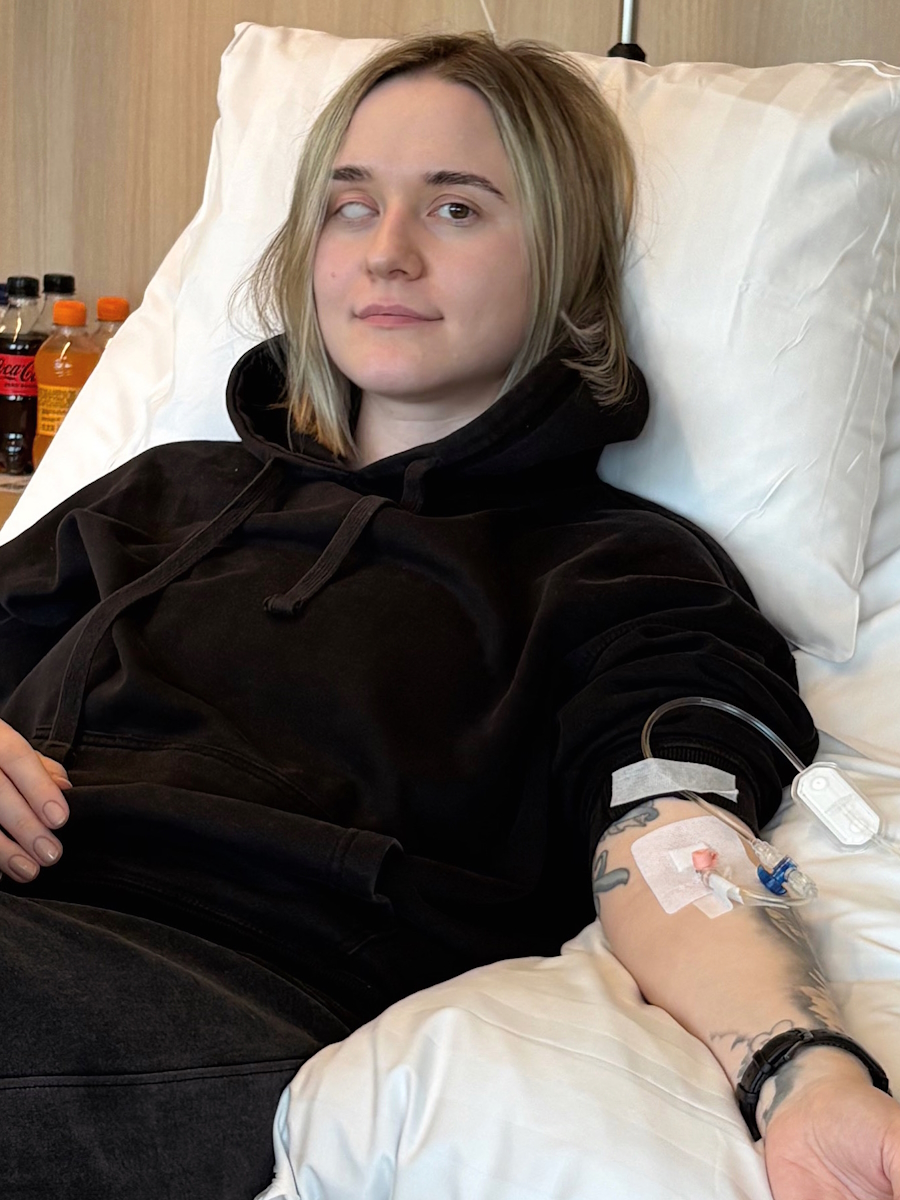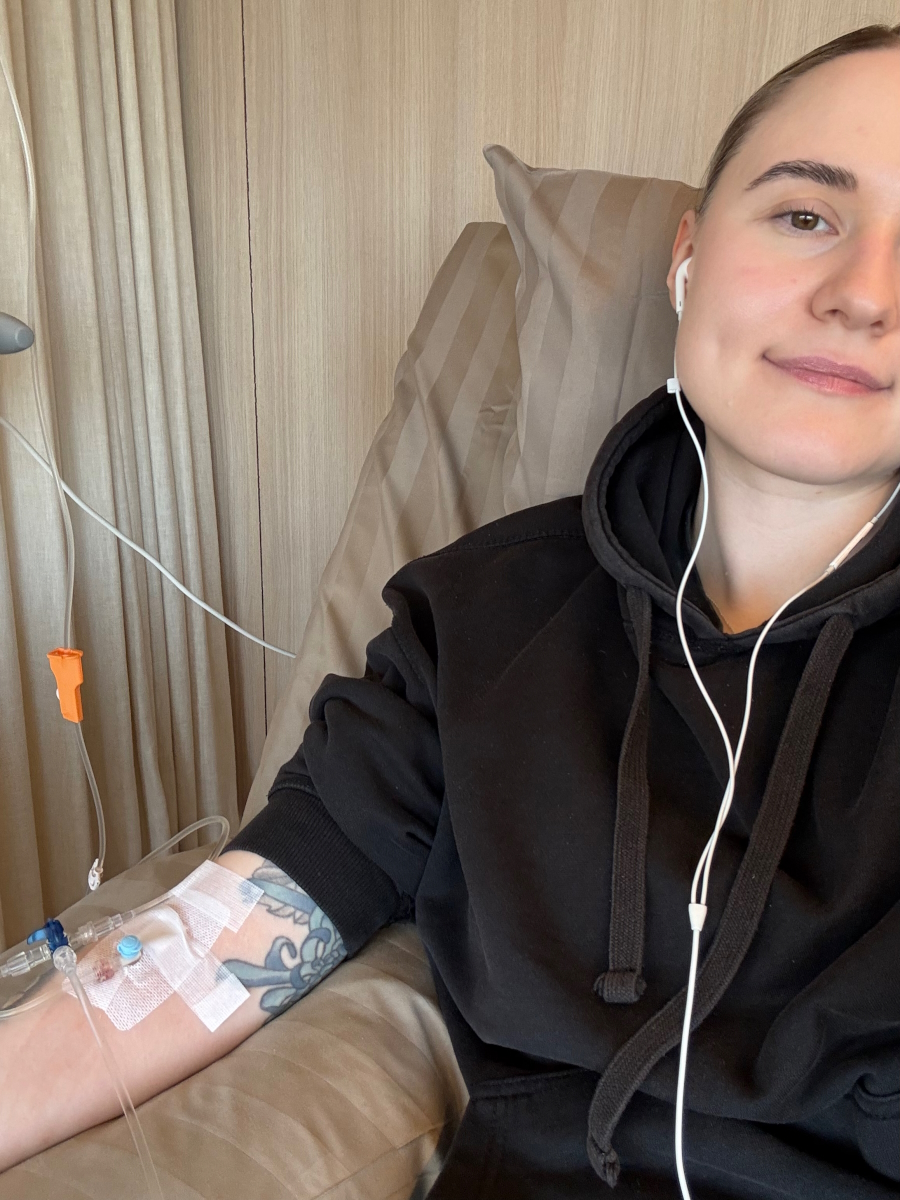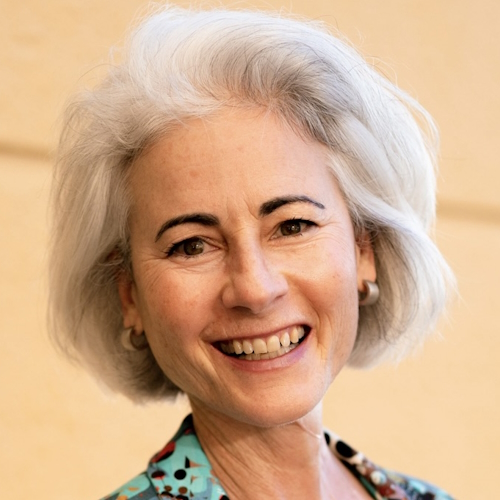How Sasha Faces the Mental & Emotional Weight of Stage 4 Ocular Melanoma
When Sasha first felt eye pressure and dryness in late 2019, she never imagined it would lead to a stage 4 ocular melanoma diagnosis. At first, doctors attributed her symptoms — headaches, vision changes, and even a black curtain covering part of her eye — to migraines or retinal detachment. But deep down, Sasha felt something wasn’t right.
Interviewed by: Nikki Murphy
Edited by: Katrina Villareal
Sasha trusted her instincts, pushed for more opinions, and eventually got the diagnosis: a malignant tumor in her eye. Within days, she underwent emergency surgery to remove the eye. The physical loss was difficult, but the emotional impact left a deeper scar.
Soon after, routine scans revealed tumors in Sasha’s liver and lungs, confirming that her cancer had already been stage 4 ocular melanoma when it was discovered. This is a rare and aggressive disease with limited treatment options. The mental toll was immense. The uncertainty, the frequent scans, and the lack of a cure left her navigating a reality that changed every few months.

Sasha tried multiple treatments: dual immunotherapy, radiation, and eventually traveled to Germany for chemosaturation and chemoembolization, all financed in part through a crowdfunding campaign. Accessing care beyond what was offered locally required advocacy, persistence, and the courage to question even trusted doctors.
At one point, Sasha’s immunotherapy was discontinued in Finland. Frustrated but determined, she sought opinions from experts in France and Germany, who confirmed she should’ve stayed on treatment. Thanks to crowdfunding and her research, she continued privately funded therapy, which she still receives every other week.
Living with stage 4 ocular melanoma isn’t just a medical ordeal, as it affects every corner of Sasha’s life. From the limitations of monocular vision that challenge her work as a visual artist to the difficult reality of not being able to plan for a family, the impact is personal and profound. Through it all, she emphasizes the importance of mental health. The hardest part isn’t always the physical treatment — it’s the emotional weight of knowing the disease may never go away.
Sasha’s story is a powerful reminder that self-advocacy saves lives, mental health deserves more attention, and financial support can be life-extending. Her voice is strong, real, and deeply needed in conversations around disability, rare cancer, and patient empowerment.
Watch Sasha’s interview to find out more about her story:
- How a black curtain over her eye changed everything.
- Why she had to erase any reminder of the day she lost her eye.
- The emotional cost of rare cancer and how she’s coping.
- Why she stopped making long-term plans.
- One simple piece of advice she believes every patient must hear.
- Name: Sasha F.
- Age at Diagnosis:
- 28
- Diagnosis:
- Ocular Melanoma
- Symptoms:
- Eye pressure
- Eye dryness
- Intense headache
- Red blood vessel in the eye
- Black curtain in vision (partial vision loss)
- Treatments:
- Surgery: enucleation (eye removal surgery)
- Immunotherapy
- Radiation therapy
- Chemosaturation
- Chemoembolization
This interview has been edited for clarity and length. This is not medical advice. Please consult with your healthcare provider to make informed treatment decisions.
The views and opinions expressed in this interview do not necessarily reflect those of The Patient Story.

Inspired by Sasha's story?
Share your story, too!
Related Cancer Stories
Head and Neck Cancers
Vikki F., Head and Neck Cancer (Nasal Squamous Cell Carcinoma)
Symptoms: Nosebleeds that persisted for years, nose changed in shape, nasal pain, migraines
Treatments: Surgeries (subtotal rhinectomy, reconstruction surgery including radial forearm free flap, bone grafts, and cartilage), chemoradiation
...
Alyssa N., Adenoid Cystic Carcinoma
Symptoms: Persistent jaw pain, lightning-like facial pain during the first bite of meals
Treatments: Surgery (tumor removal), radiation
...
Eva G., Oral Cancer, Stage 4
Symptoms: Sore on the tongue, which caused pain during eating and speaking; changes in the color and texture of the tissue where the sore was located
Treatments: Surgery (partial glossectomy, radical neck dissection, reconstruction), radiation
...
Teresa B., Recurrent Breast Cancer (Hormone-Positive), Oral Cancer (Lip Cancer), and Skin Cancer (Melanoma)
Symptoms: Lip cancer: chapped lips & a pimple-like growth on lip, breast cancer: enlarged left breast with lump, melanoma: none
Treatments: Surgeries (bilateral mastectomy with reconstruction, lumpectomy, craniotomy, Mohs, surgery, wide local excision), hormone therapy, radiation therapy
...
Kandi B., Adenoid Cystic Carcinoma, Stage 3
Symptoms: Fatigue, headaches, depression, occasional feeling of tongue being on fire or inflamed, appearance of tumor on salivary gland on tongue
Treatment: Surgery
...
